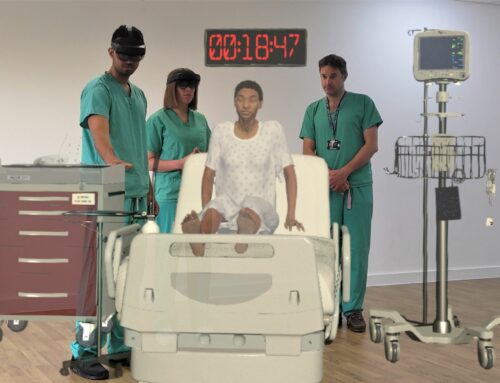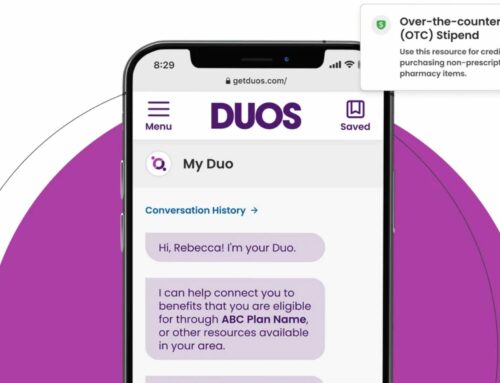By: Dr. Jonathan Wiesen, M.D., Founder and Chief Medical Officer, MediOrbis |
Obesity is second only to cigarette smoking as the leading, and fastest growing, cause of preventable death in the U.S. While in 2000, a “mere” 30.5% of American adults had obesity (body mass index [BMI] of 30 or higher), that rate has increased rapidly, helping to fuel related health issues like diabetes, cardiovascular disease, bone and joint disorders and cancer. Recent data demonstrates that the obesity rate reached 42.4% in 2017- 2018 – surpassing 40% for the first time.
Obesity is far more complex than simply “overeating,” but rather reflects a complex aggregate of interconnected neurohormonal, genetic and lifestyle elements. Only by understanding the complexity of obesity, its myriad features and components, can providers both overcome the stigma of obesity and properly manage this complex medical issue. Given its overwhelming prevalence, obesity is now recognized as one of the most pressing areas of chronic disease focus by organizations such as the American Medical Association.
The Centers for Disease Control and Prevention (CDC) defines chronic disease as conditions that last one year or more and require ongoing medical attention or limit activities of daily living, or both. Obesity alone is responsible for nearly one third of the $3.3 trillion spent annually on medical care for chronic conditions in the United States.
A recent study demonstrated that obesity is especially dangerous for men and younger patients who contract COVID-19, and that obesity stood out from racial, ethnic or socioeconomic disparities when isolated from those factors.
Fortunately, physician-managed, and technology-driven programs exist that combine medical weight loss and preventive health with access to virtual physician consults 24/7. These programs provide consumers with direct access to comprehensive physician management, in addition to a dedicated app and website, multilingual services, medication management as indicated, as well as flexible pricing options. These capabilities offer quality and value for patients with obesity, diabetes, hypertension, hyperlipidemia, and cardiovascular disease.
How Weight Loss/Prevention Programs Work
Weight loss and preventive health programs show great promise. In fact, one successful pilot program implemented by MediOrbis demonstrated:
- Significant weight loss in all patients (up to 8.5 lbs/month)
- Improved diabetes control, including lowering of hemoglobin A1c (HbA1c) (1.2% in 8 weeks) and cessation of oral hypoglycemics
- Improved energy and health consciousness
- High satisfaction with the engagement platform and clinical staff (rated 10/10).
This is both clinically and financially significant as even modest weight loss can have a dramatic positive health impact, such as a 5-10% decrease in blood pressure, lower cholesterol and cardiovascular disease risk profile, improved joint health and a 12% reduction in cancer risk.
Physicians oversaw and managed all aspects of the program, including the weight loss interventions and medication and prescription management. A top-tier telehealth platform streamlined all communications and integrated a tool set with powerful software that included artificial intelligence and predictive analytics that went beyond the standard equations to eliminate gaps in care. All platforms were HIPAA-compliant, secure with encryption and available on a mobile app that offered a simple, intuitive, and convenient, user-friendly interface.
Approaches to Medical Weight Loss
Weight loss is such a crucial component to chronic disease management because it portends improved metabolic functionality, hence has consistently shown remarkable success in reducing, and in many cases eliminating, the need for insulin and other costly diabetes medications. This leads to fewer ER visits and hospitalizations and can make a meaningful reduction in medical risk markers within three months–including HbA1c, reduction in weight, body mass index and body fat composition.
In addition to these benefits, which usually manifest within weeks of starting, patients who successfully complete a medical weight loss program have increased exercise capacity and well-being, reduction in depressive symptoms and lower fatty liver content.
The ideal way to drive meaningful weight loss, greatly improve a patient’s health and lower his or her risk factor profile is to institute a comprehensive and patient-centered program. Ideally such a program would include:
- Multiple modalities of interaction based on patient preference, including in-app and SMS messaging, phone calls and email notifications.
- Physician oversight and engagement to ensure that any indicated pharmaceuticals can be prescribed, and chronic medications adjusted.
- Coordinated care teams, including physicians, dieticians, and weight loss specialists.
- Comprehensive care programs including physician evaluations, laboratory monitoring and best practice recommendations.
Enabling patients to develop healthy habits, along with virtual contact 24/7, can put them on the path to sustained weight loss, improve health outcomes, and enhance quality of life.
 About the Author
About the Author
Dr. Jonathan Wiesen, M.D., is founder and chief medical officer at MediOrbis. Dr. Wiesen is also a pulmonary and critical care physician passionate about clinical medicine, innovation and medical technology. He graduated from the Albert Einstein College of Medicine with distinction in research and completed his training in internal medicine and pulmonary/critical care at the Cleveland Clinic, where he earned an advanced teaching degree, as well as several teaching and research awards. Contact: jwiesen@mediorbis.com












